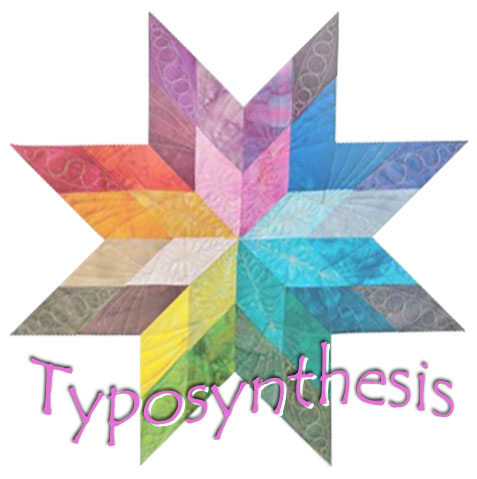Thinking Introverted (Ti)
MBTI definitions: Myers & Briggs - Linda Berens and Dario Nardi, Dario Nardi - Socionics definitions: Ausra Augustinaviciute, Socionics
* * *
● Description of Si by Myers & Briggs
Introverted Thinking: Seeks internal consistency and logic of ideas. Trusts his or her internal framework, which may be difficult to explain to others.
Source - www.myersbriggs.org
* * *
● Description of Si by Linda Berens and Dario Nardi
Introverted Thinking often involves finding just the right word to clearly express an idea concisely, crisply, and to the point.
Using introverted Thinking is like having an internal sense of the essential qualities of something, noticing the fine distinctions that make it what it is and then naming it.
It also involves an internal reasoning process of deriving subcategories of classes and sub-principles of general principles.
These can then be used in problem solving, analysis, and refining of a product or an idea.
This process is evidenced in behaviors like taking things or ideas apart to figure out how they work.
The analysis involves looking at different sides of an issue and seeing where there is inconsistency.
In so doing, we search for a "leverage point" that will fix problems with the least amount of effort or damage to the system.
We engage in this process when we notice logical inconsistencies between statements and frameworks, using a model to evaluate the likely accuracy of what's observed.
Source - www.cognitiveprocesses.com
* * *
● Description of Si from “Magic Diamond” (2020) by Dario Nardi (PhD, neuroscience and personality researcher):
"Skillful Sleuthing" (Ti): Gain leverage using a framework.
Study a situation from different angles and fit it to a theory, framework, or principle. This often involves reasoning multiple ways to objectively and accurately analyze problems. Rely on complex/subtle logical reasoning. Adept at deductive thinking, defining and categorizing, weighing odds and risks, and/or naming and navigating. Notice points to apply leverage and subtle influence. Value consistency of thought. Can shut out the senses and “go deep” to think, and separate body from mind to become objective when arguing or analyzing. Tend to backtrack to clarify thoughts and withhold deciding in favor of thorough examination. May quickly stop listening.
* * *
● Description of Ti from “Dual Nature of Man” by Ausra Augustinaviciute
Introverted logic.
We call ‘logical’ those feelings that arise from the process of comparing one object to another on the basis of some objective criteria — for example, a sense of distance, weight, volume, worth, strength, quality, etc. These are feelings of objective evaluation, which in certain situations help to activate or passivate the person who experiences them. Incoming information is recognized by such an individual as a sense of objects’ proper or improper correlation and proportion, a sense of balance or imbalance between the objects, or a sense of understanding or lack of understanding of the advantages of one object over another. This also includes all feelings that result from knowing or not knowing objects and phenomena — curiosity, respect, fear, and a sense of the logicalness or illogicalness of things, as well as a sense of one’s own power or powerlessness before different objects.
All these feelings we shall call logical. Their sum is a person’s sense of logic, which is developed to different extents in different people. We might say that logical feelings convey information about presence or lack of knowledge, comparability and incomparability, and the presence or lack of balance between them, as well as about the space and location of object within it. These feelings are called objective because they do not take into consideration the interests and needs of the person him/herself, but only such correlations of objective qualities. This perceptual element determines a person’s ability or inability to see the objective, logical relations between objects or their components.
When this element is in the leading position, the individual is distinguished by his or her ability to logically evaluate relations of the objective static reality, or the world of objects. He also has the ability to change the interrelations between properties of different objects according to his wishes, and through this influence objects themselves as carriers of these properties. Correct evaluation of one’s relations with other objects helps the individual know which objects should be avoided, and which can be “hunted.” Such an individual is able to set his logic — or his knowledge of objectifiable reality, patterns, laws, and correlations of the objective world — in opposition to knowledge of others. He has the ability to mold and perfect not only his own knowledge of objectifiable reality, but also that of other people. This creates a feeling of power when clashing with other people’s logic or lack thereof.
Source - wikisocion.github.io
* * *
● Wikisocion description of Ti
Ti is also called structural logic, or white logic.
Ti is generally associated with the ability to recognize logical consistency and correctness, generate and apply classifications and systems, organize systematic and conceptual understanding, see logical connections between things (including logical similarities, differences, and correlations) by means of instinctive feelings of validity, symmetry, and even beauty. It is like common sense, in that it builds on one’s expectations of reality, through a somewhat personal, though explicable, understanding of general truths and how they are manifested.
Types that value Ti naturally question the consistency of beliefs that are taken for granted in everyday life. They strongly prefer to make decisions based on their own experience and judgement, as opposed to relying on external authorities for knowledge, which they use only as a last resort. They also have respect for people with clearly defined and internally consistent opinions, believing that a sense of internal certainty is necessary for orienting oneself in life. To these types, one’s personal standards of truth are more reliable than public consensus.
They see overly pragmatic views as shallow, and try to limit public discussion of mundane practical matters. They are especially sensitive to redundant information.
Source - wikisocion.github.io
